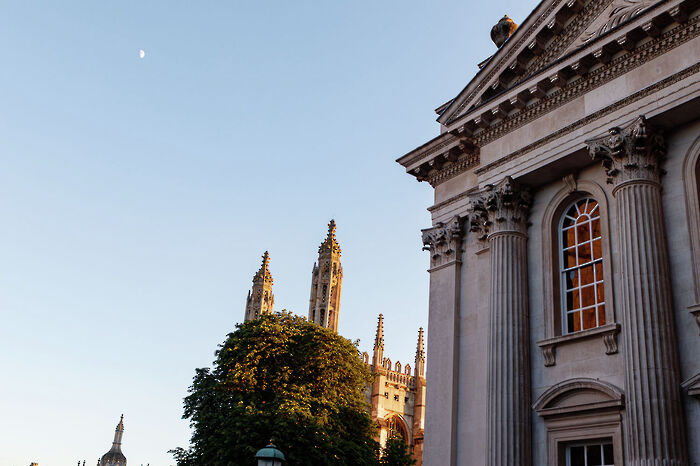A full-time BME sabbatical officer would bring anti-racist work to the forefront of the students’ union
Freya Lewis and Howard Chae urge all students to vote in favour of the CUSU-GU merger, which provides for the introduction of a full-time BME officer

Students are currently being balloted on whether to merge CUSU and the Graduate Union (GU) into a single students’ union — a move which will drastically change how all Cambridge students are represented at a university-wide level. One of the key changes proposed is the introduction of a full-time BME sabbatical officer. We urge all students to vote to approve these proposed changes, not because we think a seat at the table will instantly ‘fix’ all the issues that BME students face, but because it will foreground racism as an issue which needs to be taken seriously by the University.
At present, the burden of tackling racism falls mostly on BME students themselves. Whilst we do not resent advocating for the issues that we care about, there is certainly a collective feeling that we are overburdened. This is with both the weight of responsibility of what we do and sheer amount of work that it entails. An hour-long training session, and for many no training at all, is not enough to equip students to tackle the deeply embedded structures of institutionalised racism at Cambridge, nor support students who have been victim to them.
Many of us who take up anti-racist work also find that the university and colleges are often quite resistant and try to undermine the efforts of those pushing for change. Having to stand up to college authorities, navigate the complex bureaucracy of the university, and deal with the disproportionate (and often hostile) media scrutiny that young BME organisers are under, is a tall order. In combating racism, much work often comes with little tangible recognition or reward. Many of us do it simply because there is no one else to speak up and take action for us.
What is often overlooked is the personal toll of doing anti-racist work. Most notably, former BME Campaign president Jason Okundaye and ex-CUSU Women’s Officer Lola Olufemi were both subjected to targeted campaigns of harassment and abuse by the right-wing press for speaking up on issues of racism as their colleges and the university watched in silence. Varsity has reported on the ‘chilling effect’ of the government’s Prevent counter-extremism strategy, and the pressures that Muslim students face to censor their own speech. There are also the more mundane costs of struggling to get our voices heard in an institution which refuses to take racism seriously. As anyone with experience of sitting on a committee as a BME officer will probably know, cases of racism happen all year round, and handling them means cancelling plans with friends and rescheduling supervisions and deadlines at a moment’s notice.
None of us with experience in anti-racist work here are under the illusion that the introduction of a full-time BME sabbatical officer will solve all the problems faced by BME students overnight. Representation is not liberation: it will take a lot more than a BME face at meetings of senior staff and decision-making boards to tackle the racism embedded in this university (and society more widely) and make it a safer and better space for BME students. And of course, we need to be vigilant to ensure that a principled commitment to taking action against racism is integrated into the work of all sabbatical officers, rather than simply offloaded wholesale onto the BME officer. It is, however, a good place to start.
A full-time BME sabbatical officer would place the issues that affect BME students at the forefront of the work of the students’ union. Rather than being lumped into all-encompassing categories such as ‘welfare’ where they are often sidelined and ignored, issues ranging from the lack of comprehensive policies and procedures to tackle racial harassment to low rates of admission for Black students to the Black attainment gap need to be recognised as important in their own right. It would institutionalise the work student campaigners are doing to tackle racism, ensuring that it is not lost to the rapid rate of student turnover. We cannot expect there to be a new cohort of BME students every year who will pick up the reins of the previous generation of campaigners and carry the weight of anti-racist work.
We are hopeful that if this role is done right, it can serve a meaningful purpose. The introduction of a full-time BME sabbatical officer means that there will be a site of consistent representation for BME students. By lifting some of the burden of anti-racist work off of students who do not have the time or resources to devote to it the attention it needs, we are signalling that the issues BME students face are issues that should concern all students. Representation is not liberation, but it certainly is a good place to start.
 News / SU reluctantly registers controversial women’s soc18 December 2025
News / SU reluctantly registers controversial women’s soc18 December 2025 Features / Should I stay or should I go? Cambridge students and alumni reflect on how their memories stay with them15 December 2025
Features / Should I stay or should I go? Cambridge students and alumni reflect on how their memories stay with them15 December 2025 News / Dons warn PM about Vet School closure16 December 2025
News / Dons warn PM about Vet School closure16 December 2025 News / Cambridge study finds students learn better with notes than AI13 December 2025
News / Cambridge study finds students learn better with notes than AI13 December 2025 News / Uni registers controversial new women’s society28 November 2025
News / Uni registers controversial new women’s society28 November 2025










